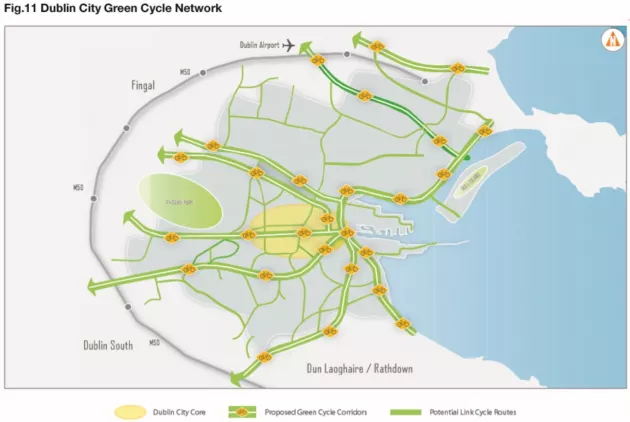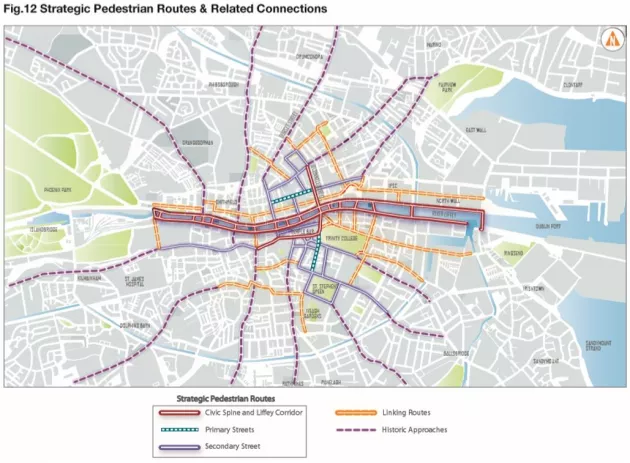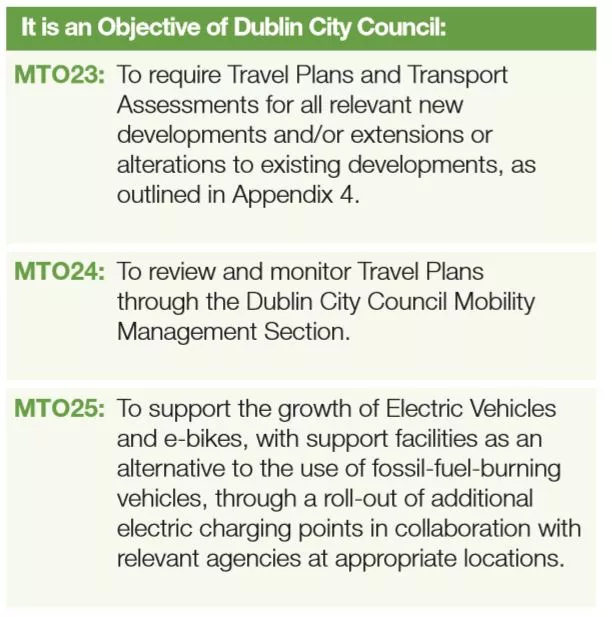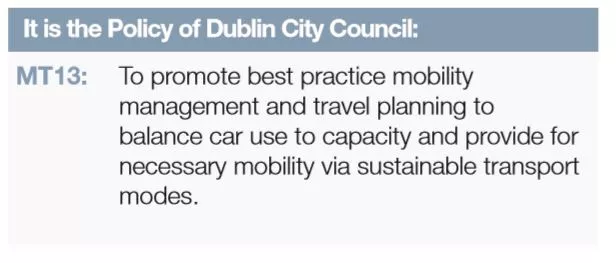8.5.5 Mobility Management & Travel Planning
8.5.5 Mobility Management & Travel Planning
Mobility Management
Mobility Management seeks to encourage as much travel as possible by sustainable means such as public transport, walking and cycling. At a strategic level, this involves locating development in the most accessible locations while at a more detailed level, it means designing new areas and developments in a way that minimises the need to travel from the outset and reduces the demand for car use.
Engagement and collaboration with communities, schools and workplaces can greatly help achieve modal shift. A good example of this has been the ‘Hike it, Bike it, Like it, Drimnagh!’ project which helped bring about favourable changes in travel behaviour.
Dublin City Council’s Mobility Management Section manages and monitors existing and future Travel Plans submitted as part of the planning process. The Council also implements its own Workplace Travel Plan.
Travel Plans
Travel Planning is a tool that helps to implement mobility management policies. They can be prepared for a variety of uses including workplaces, residential developments and schools. Travel Plans may be required in certain circumstances to balance car use to the available road capacity and to provide for mobility via other more sustainable transport modes (see Appendix 4).
A Transport Assessment is a comprehensive review of all the potential transport impacts of a proposed development. In the case of developments with significant car trip generation potential and attraction rates, applicants will be required to submit a detailed assessment of the transportation systems provided and the impact of the proposed development on the surrounding environment and transportation network through the submission of a Transport Assessment (see Appendix 4). School Travel Plans are required for all new schools.



